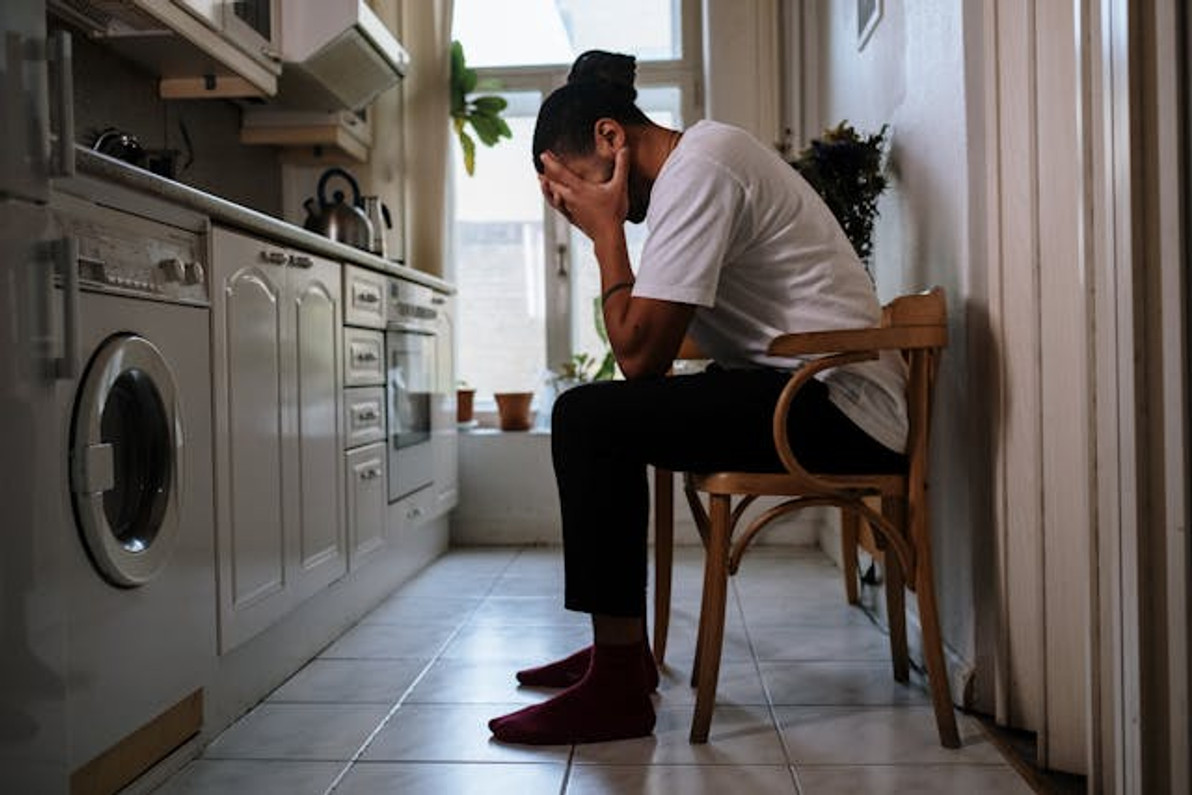How to Understand and Prevent Anxiety Attacks Stemming From Your Grief
By Camille Johnson
Grief doesn’t just come in tears or silence. Sometimes it arrives as racing thoughts, a pounding chest, or the sudden need to leave a room. For many people, anxiety is how grief expresses itself. It can be erratic, physical, and overwhelming. These aren’t episodes of “being dramatic.” They’re real, somatic alarms from a nervous system struggling to recalibrate after loss. The line between sadness and fear blurs fast. That’s why preventing anxiety attacks during grief isn’t about denying emotion. It’s about building a system that holds you through it. One breath, one practice, one structure at a time.
Understand Grief’s Anxiety
First, you’re not broken. Grief can hijack the brain in ways that mimic trauma, and those panic waves? They’re often your body reacting to separation as danger. It’s a throwback response to being suddenly alone, disoriented, or unsure where safety went. While it can feel disorienting, it's common for grief to stir fear responses that can feel identical to anxiety attacks. Knowing this can reduce the shame loop that often kicks in after the panic fades. Your brain is trying to protect you, not punish you. Once you understand this, you can begin to unhook the fear from the feeling.
Use Grounding When Panic Hits
When your chest tightens or your vision narrows, logic won’t save you…but grounding might. The trick is pulling your attention out of your spinning thoughts and back into your body. There’s no need to chant or stretch or be “good” at it. One of the simplest methods is this body awareness grounding technique: focus on 5 things you see, 4 you can touch, 3 you can hear, 2 you can smell, 1 you can taste. It’s not a magic trick, but it reboots your sensory system long enough to regain a sense of space. You’re not floating. You’re here.
Build a Daily Routine
In the early stages of grief, time warps. Days blur. Sleep gets patchy. But the body, especially an anxious one, craves rhythm. Even if nothing feels stable emotionally, anchoring yourself in simple, repetitive behaviors can stop spirals before they start. Focus on sleep, food, and movement. The science backs it: regular sleep and a balanced diet not only protect physical health during grief but can dramatically buffer against mental breakdowns. Your routine doesn’t need to be perfect. It needs to be real. Morning coffee. Evening walks. Same lunch every Tuesday. These rituals tell your body the world isn’t ending, even if it feels like it is.
Try Breath or Mindfulness
You won’t meditate your way out of grief, but you might breathe your way through an attack. The goal isn’t serenity. It’s interruption. Mindfulness isn’t a buzzword here, but it is a pause button. Techniques like breathing meditation can slow your heart rate, lower cortisol, and distract your brain just long enough to prevent escalation. This doesn’t require incense or a dedicated mat. Two minutes, eyes closed, attention on the exhale. Or focus on the cool air in your nose. The point is to notice without judging. And in that noticing, sometimes, the panic lets go of its grip.
Process Anxiety Through Writing
If your brain is going to spin, give it a page to land on. You don’t need to be poetic or even coherent. Just honest. Free-writing your fears, triggers, and grief bursts can create space between you and the attack. Journaling externalizes what otherwise loops endlessly inside your head. Use prompts. Swear. Scribble. Anything. The idea is to just take time for processing. The goal is distance, not answers. Words can be handles when emotion is too heavy to hold.
Quiet Through Music
There are moments when talking, breathing, or thinking feel like too much. For those times, let sound carry you. Ambient tracks, gentle piano, or nature soundscapes can downshift your nervous system when everything else fails. Studies show that ambient music to regain control can slow your pulse and reduce cortisol spikes during anxious episodes. Try looping a track that feels like exhaling. Let it play while you rest, walk, or just lie down with your eyes closed. You’re not trying to escape your grief. You’re just giving your nervous system a way to survive it.
Find Structure in Learning
Loss often wipes out your internal compass. Grief can leave people questioning not just whom they’ve lost, but who they are now. In that aftermath, some find relief in forward motion—learning something, building something, becoming something. Not to numb, but to rebuild. Structure, deadlines, and small wins can feel like life rafts in chaos. One idea is to find out more about online degrees that offer flexible, goal-oriented learning paths. Studying something new, especially in a field that sparks curiosity or leads to opportunity, can reconnect you to purpose. Think about what will fit for you. You’re not starting over. You’re re-rooting.
Preventing anxiety attacks in the wake of grief doesn’t mean pretending the grief isn’t there. It means surrounding it with systems that keep you steady when it pulls you sideways. You’re not weak for needing structure. You’re wise for creating it. Build habits that lower the slope of the spiral. Add breathing room to your day, literally and figuratively. Honor what your body is saying, even when your mind can’t translate it. Some days will still flood. Others will stretch like dry roads. Neither is forever. You are still here, and that is a start.
Discover a wealth of compassionate resources for navigating grief and loss at Centering, where healing and support are just a click away.
Photo from Pexels
About the Author
Camille created Bereaver (info@bereaver.com) after she went through the ups and downs of the bereavement process herself following the loss of her parents and husband. With the help of her friend, who was also experiencing a loss of her own, she learned how to grieve the healthy way, and she wants to share that with others. There is no one way to grieve, but it is important to do it in a way that supports your physical and mental health throughout.




